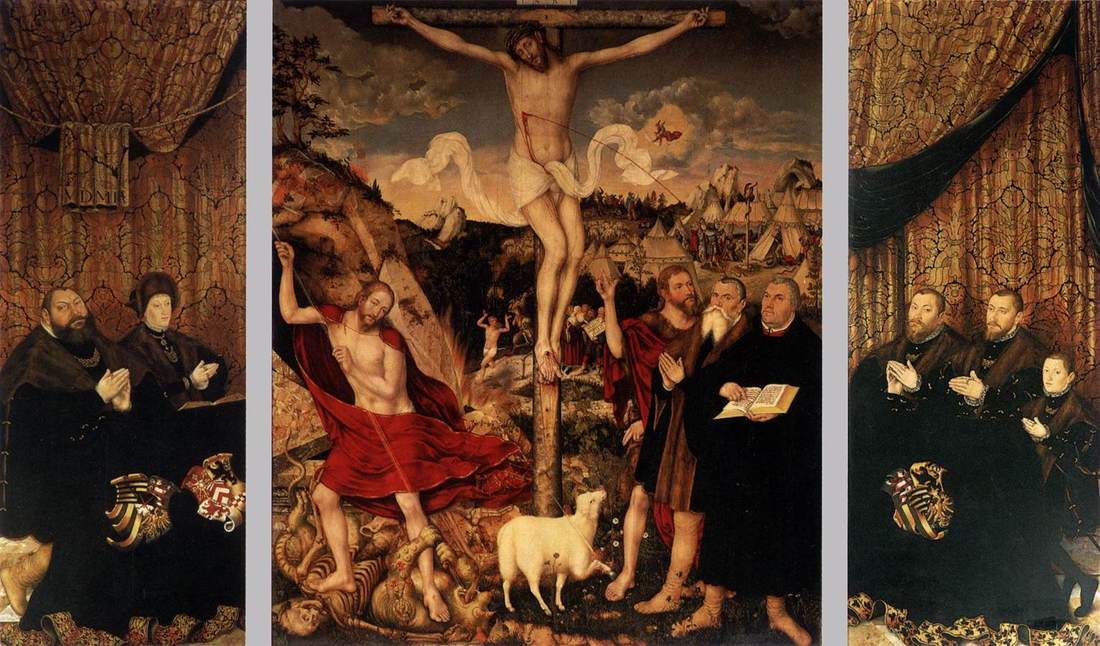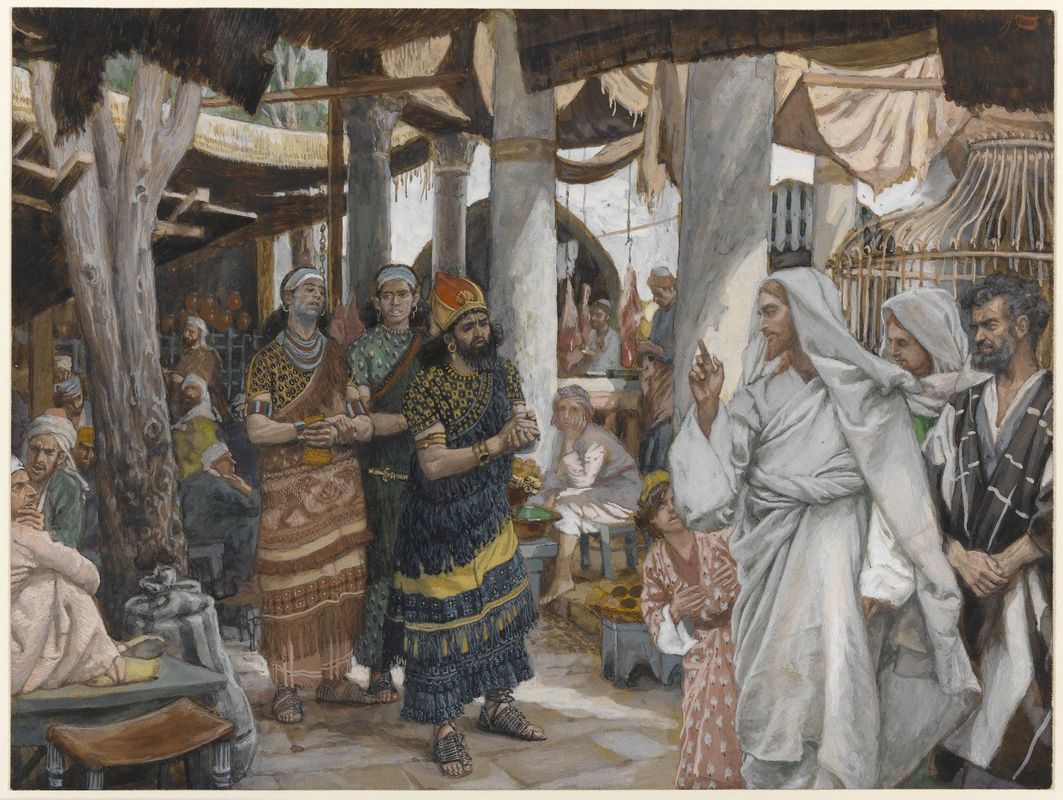October 28, 2018
The law of God is good and wise and sets his will before our eyes. The law of God is good. To say that God’s law is not good is to say that God is not good. The law is quite simply, what God desires to be done. Jesus summarizes the entire law as, “Love the Lord your God with all your heart, soul, and mind, and love your neighbor as yourself.” Love. Love is what God desires to be done. The law reveals to us the essence of who God is. God is love.
The law commands that you conform yourself to be like God. Scripture is very clear that this is the aim of the law. God speaks in Leviticus 19, “You shall be holy, for I the LORD your God am holy.” Likewise, our Lord Jesus says, “You therefore must be perfect, as your heavenly Father is perfect.” (Matthew 5:48) Every one of the Ten Commandments is a command to love. You shall have no other gods. Honor your father and your mother. You shall not comit adultery. You shall not steal. You shall not bear false witness. The purpose in all of these commands is for you to love God and your neighbor; put their needs before your own. And if you love perfectly, then you are like God. This is what it means to be righteous. God is righteous. He is the standard for what is right. So, if you want to be righteous you must obey the law and do what it says, as Scripture says, “For it is not the hearers of the law who are righteous before God, but the doers of the law who will be justified.” (Romans 2:13)
Only those who are justified by God, that is declared righteous according to his standard, will enter heaven. And so, it seems clear that if you want to go to heaven, then you must obey the law. It must depend on your works. Yet, we heard in our Epistle lesson, “For by works of the law no human being will be justified in his sight, since through the law comes knowledge of sin.” The law of God is good. We must never blaspheme against it. Yet, the law of God gives you no hope of salvation. Rather, each command, which discloses to you God’s good and holy will, reveals your sin.
“Now the law came to increase the trespass,” St. Paul writes (Rom. 5:20). This is because we are sinners. Everything we think, say, and do is tainted with sin, as God himself said way back in Genesis 6, “every intention of the thoughts of [man’s] heart was only evil continually.” So, instead of showing the way to righteousness and eternal life, the law brings death. It doesn’t justify; it condemns. It shows that you do not love as you ought. So, because we are sinners, who cannot help but sin, and because the law is holy, righteous and good and exposes sin to be sin, we cannot be justified by the law in God’s sight.
Yet, what did we just hear? “But now the righteousness of God has been manifested apart from the law, … the righteousness of God through faith in Jesus Christ for all who believe.” It is faith, which justifies sinners, not the law! “We hold that one is justified by faith apart from works of the law.” This is great news! This means that we can go to heaven despite our sins.
But it is important for us to understand what justifying faith is. Faith is not simply historical knowledge; as long as you believe that Jesus lived, died, and rose, then you are saved. No, justifying faith trusts in Jesus. Justifying faith banks on the belief that God is pleased with you on account of Christ’s sacrifice and forgives your sins on account of Christ. Our Lutheran confessions expresses it this way:
“Our churches also teach that men cannot be justified before God by their own strength, merits, or works but are freely justified for Christ’s sake through faith when they believe that they are received into favor and that their sins are forgiven on account of Christ, who by his death made satisfaction for our sins. This faith God imputes for righteousness in his sight.” Romans 3-4 (Augsburg Confession IV)
We are received into favor and our sins are forgiven for Christ’s sake. This is the faith that justifies. Justifying faith trusts in the fact that God is pleased with you, not because of anything you have done, but for the sake of Jesus Christ alone.
Justifying faith is by grace alone. Grace is a gift from God, which means that it is not by works. Many believe that we are saved both by faith and by our works. This is the teaching of the Roman Catholic Church, which is the reason the Lutheran Church formed and why we are celebrating Reformation Day today. And many others besides the Roman Church teach that you must do good works in order to be saved. But grace removes your works from the equation, as Romans 11:6 declares, “But if it is by grace, it is no longer on the basis of works; otherwise grace would no longer be grace.” And our Epistle lesson says that we are “justified by grace as a gift.”
You are justified by grace apart from your works, because Christ Jesus has completed all the work that needed to be done. To be saved by grace through faith means to be saved by Jesus. Again, faith is not simply historical knowledge of events. Who doesn’t know that Jesus Christ died on the cross and rose from the dead on the third day? It is one thing to know these events really happened. It is another thing to trust that God is pleased with you because of them.
The law must be fulfilled. And if the law is not obeyed, God demands punishment. Our God is a just God. He doesn’t simply ignore sin and pass lenient judgments. No, God demands justice be served. So, as St. John says, Jesus took upon himself the sins of the whole world. The Lord laid on Christ the iniquity of us all. And Christ was punished for our sins. The righteous one was punished for the sins of the unrighteous ones. And by Christ’s suffering and death, he made satisfaction for our sins and appeased God’s wrath against all sinners.
Two people can look at the passion of Christ and see two different things. One can see the law, while the other can see the Gospel. One looks at Jesus suffering and sees God’s anger against sin. It’s a terrifying thought that drives one to hide from God. This is why it is important to recognize that Christ’s death on the cross was for your sake and on account of his sacrifice, God is pleased with you. God is not angry at you because of your sins. Jesus has taken that anger away. In Christ’s resurrection you see that all your sins truly are gone forever, nailed to the cross. This is how you are saved by grace apart from your works. This is the most comforting message in the world, because it gives you confidence that you will go to heaven. You can know for a fact that you are justified before God, because Christ has made atonement for your sins. Your works bring doubt, because they are imperfect and tainted with sin. But Christ’s work gives certainty, because God cannot fail or lie.
The crucifixion, death, and resurrection of Christ show that our God is just. He is righteous. Yes, he looks over sins for a time, yet, he demands justice be served. If he didn’t, he would not be loving. God requires love. Hatred must be punished. Yet, in this great act of justice Christ shows perfect love. Jesus demonstrated perfect love throughout his life as he obeyed the commandments, loving God and his neighbor throughout. Yet, nowhere is Christ’s love displayed more fully that in his passion for our sins.
Jesus obeyed his Father’s will out of love for him. No one took Jesus’ life from him. He laid it down of his own accord and he had authority to take it up again. Jesus’ death was not an accident. Our Lord and brother willingly suffered and died out of love and obedience to his Father. He put his Father’s will before his own, as he himself said at the beginning of his passion, “Nevertheless, not my will, but yours, be done.” (Luke 22:41) Jesus perfected his love for his neighbor by bearing the burden of every last human being. He died for all sins. This is not an impersonal task. This is very personal. The wrong you know you have done, that has burdened your conscience, so that your heart sinks into your gut, that is the wrong Jesus has placed upon himself out of love for you. There is nothing more personal than that. There is nothing more loving than that.
In the crucifixion and death of Christ, we see God’s love on full display. God is love. What does this mean? It means that he sent his only begotten Son to die, so that whoever believes in him might live. This is love, not that we have loved God, but that he loved us and sent his Son to the be propitiation for our sins. The Gospel is not an overthrowing of the law. The law demands love. The Gospel is the perfection of love. God upholds the law of love forever through the death and resurrection of his Son.
To be a sinner means that you lack love. But through faith in Christ’s perfect love God only sees love in you. He is totally and perfectly pleased with you. He credits to you for Christ’s sake the perfect love, which his law demands. This is why St. Paul writes, “There is therefore now no condemnation for those who are in Christ Jesus.” We do continue to sin as long as the old Adam hangs around our necks, that is, as long as we live on this sinful earth. Yet, God does not count these sins against us. He only sees Christ’s righteousness shine through our faith.
Yet, because of the wickedness of unbelief many assume that this means that Christians can therefore go on sinning, since we are saved by faith and not by works. They fail to see, as the Jews did in our Gospel lesson, that those who sin are slaves to sin. The gospel sets us free, not to become slaves again to sin, hatred, and death, but to be free to righteousness, love, and eternal life.
Scripture says, “We love, because he first loved us.” This means that God’s love for us, which we witness in Christ Jesus and receive through faith, produces love in us. Faith is a living active thing. Through faith we are justified. This means that through faith God makes us into good trees. Good trees bear good fruit! Yes, even now in these sinful bodies, imperfectly, clumsily, with lots of repentance and forgiveness along the way, we love. We seek to please God because we love him. We seek to help our neighbor, because we love our neighbor. How couldn’t we? The same blood shed to wash away our sins was shed to cleanse our neighbor!
The Lutheran Reformation proclaimed to the whole earth that sinners are justified by faith apart from their works. And for this, we have been slandered and accused of rejecting love. That is nonsense. The Gospel that Jesus Christ saves sinners is a teaching that cannot help but produce love. Let us love with confidence, not fearing that our works are imperfect, but trusting that even our imperfect acts of love are sanctified by the blood of Jesus. Amen.



 RSS Feed
RSS Feed